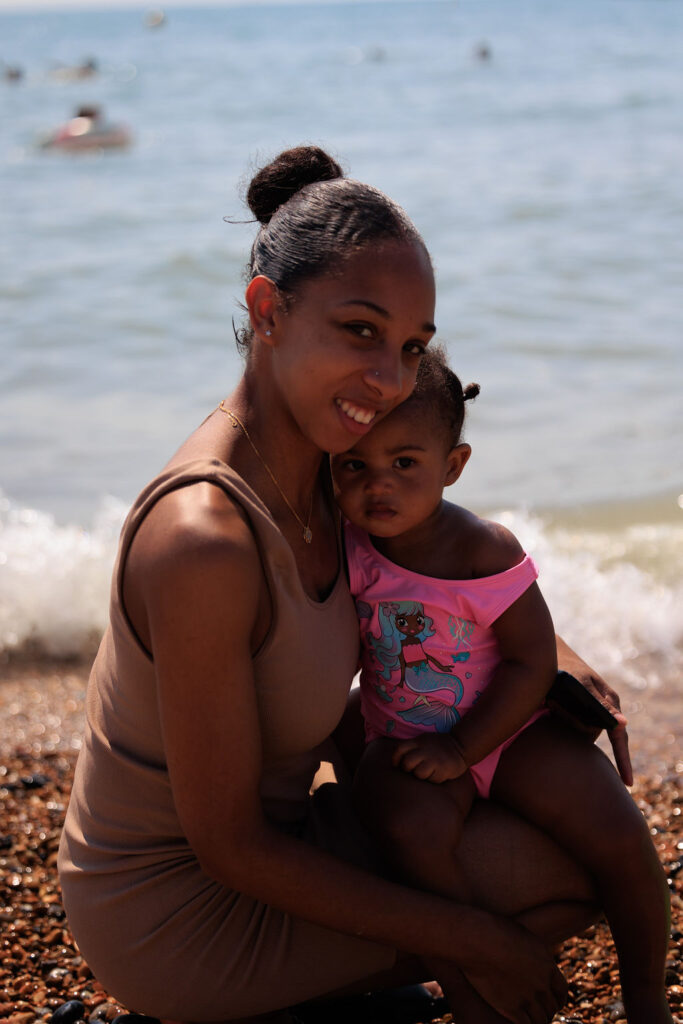Help with education costs
9 mins read
On this page, you’ll find information about free school meals, help with uniform costs, school transport, EMA and the 16-19 bursary, and the Disabled Students’ Allowance.
View content only relevant to your country:
In this article
Free school meals
In England
Eligible benefit claimants
If your child is registered at a maintained school, academy or free school, the school’s governing body must provide a free midday meal if you claim certain benefits or if they Universal Credit in their own right.
Your child should get free school meals if you receive one of the following benefits:
- Income-related Employment and Support Allowance.
- Pension Credit (guarantee credit).
- Universal Credit (but see below).
- Support under Part IV of the Immigration and Asylum Act 1999.
If you get Universal Credit, your entitlement to free school meals will depend on your earnings. Joint earnings are counted if you are part of a couple. Your net earnings must not exceed:
- £616.67 in the monthly assessment period before you claimed free school meals.
- A total of £1,233.34 in the two monthly assessment periods before you claimed help.
- A total of £1,850 in the three monthly assessment periods before you claimed help.
However, from the start of the 2026/27 school year, the Department for Education (DfE) in will extend entitlement to free school meals to include all children from households in receipt of Universal Credit, regardless of their parents earnings.
If your child receives Universal Credit in their own right, they may also qualify for free lunches while at school.
Transitional protection
There are also protections for some pupils whose parents used to qualify for free school meals but who no longer meet the tests outlined above.
Any pupils who were entitled to free school lunches on or after 31 March 2022 continue to be entitled until they finish the phase of education (eg, primary or secondary school) that they were in on 31 March 2022. This applies even if their household no longer gets Universal Credit.
Guidance also states that any child who gained eligibility for free school meals after 1 March 2018 will be protected against losing free school meals until March 2025, and then until the end of their phase of education.
Free meals in further education
If your child is no longer in school, but has moved into further education (e.g. a college course) funded by the DfE, they may be eligible for free meals in further education.
Your child will qualify if they are aged 16-18 and you are in receipt of one of the eligible benefits mentioned above. Students aged 19 or over who meet the eligible benefits test can also qualify for free meals if they are continuing on a study programme they started before turning 19, or they have an Education, Health and Care (EHC) plan.
A young person in non-advanced education who gets Universal Credit in their own right is entitled to free lunches up until the age of 25, so long as they have an EHC plan.
Who else is eligible?
Even if you do not receive any of the benefits above, you are still entitled to free school meals for any child who:
- Is in reception, Year 1 or Year 2 in England.
- Is in primary school in London.
In Northern Ireland
Eligible benefit claimants
Your child should get free school meals if you receive one of the following benefits:
- Income-related Employment and Support Allowance.
- Pension Credit (guarantee credit).
- Universal Credit (but see below).
- Support under Part IV of the Immigration and Asylum Act 1999.
If you get Universal Credit, your entitlement to free school meals will depend on your earnings. Joint earnings are counted if you are part of a couple. Your annual net earnings must be no more than £15,390.
If your child receives Universal Credit in their own right, they may also qualify for free lunches while at school.
Who else is eligible?
Even if you do not receive any of the benefits above, the following groups may also be entitled to free school meals:
- Eligible students.
- Children boarding at a special school.
- Children who have special education needs and require a special diet (this includes students in further education).
In Scotland
Eligible benefit claimants
Your child should get free school meals if you receive one of the following benefits:
- Income-related Employment and Support Allowance.
- Pension Credit (guarantee credit) – though in Scotland this is discretionary.
- The Scottish Child Payment (but only in primary school)
- Universal Credit (but see below).
- Support under Part IV of the Immigration and Asylum Act 1999.
If you get Universal Credit, your entitlement to free school meals will depend on your earnings. Joint earnings are counted if you are part of a couple. Your net earnings must be no more than £850 in the monthly assessment period before you apply for free school meals.
If your child receives Universal Credit in their own right, they may also qualify for free lunches while at school.
Who else is eligible?
Even if you do not receive any of the benefits above, the following groups may also be entitled to free school meals:
- Children in primary 1 to 5 at local council-run or Scottish Government-funded schools.
- Children in special schools run by the local council or funded by the Scottish Government.
- Children receiving free early learnings and childcare.
- A child who at some point since they turned two has been looked after or had a Kinship Care Order or had a Guardianship Order.
In Wales
Eligible benefit claimants
Your child should get free school meals if you receive one of the following benefits:
- Income-related Employment and Support Allowance.
- Pension Credit (guarantee credit).
- Universal Credit (but see below).
- Support under Part IV of the Immigration and Asylum Act 1999.
If you get Universal Credit, your entitlement to free school meals will depend on your earnings. Joint earnings are counted if you are part of a couple. Your net earnings must be no more than:
- £616.67 in the monthly assessment period before you claimed free school meals.
- A total of £1,233.34 in the two monthly assessment periods before you claimed help.
- A total of £1,850 in the three monthly assessment periods before you claimed help.
If your child receives Universal Credit in their own right, they may also qualify for free lunches while at school.
Transitional protection
Any pupils who were entitled to free school lunches on or after 31 December 2023 continue to be entitled until they finish the phase of education (eg, primary or secondary school) that they were in on 31 December 2023. This applies even if their household no longer gets Universal Credit.
Who else is eligible?
All children attending mainstream primary schools can access universal free school meals.
Unable to access your child’s free school meal?
Many disabled children are entitled to free school meals, but struggle to access their entitlement to them because of their disability or medical condition.
Schools have a legal duty to make “reasonable adjustments” to the way they deliver free school lunches. Use our legal guide and these template letters to ask your school for a food voucher. This includes if your child is in receipt of an EOTAS package.
School uniforms
Local authorities have discretion to help with the cost of school clothing for pupils in maintained schools. The rules vary from area to area.
In England and Scotland, you’ll need to ask your local authority about the help available in your area. See also the Best Start Grant in Scotland.
In Northern Ireland, uniform grants follow similar eligibility criteria to free school meals – talk to your education authority.
In Wales, a School Essentials Grant can cover uniform costs and follows similar eligibility criteria to means-tested free school meals.
School transport
Local authorities may provide transport or help with the costs for eligible children and young people.
See more elsewhere on our website:
Visiting a child at a special school
Education authorities have discretion to pay some or all of the fares of parents visiting children at a special school a long way from home.
Bursaries, grants and financial support for students
There are different kinds of bursaries and grants available for students in the UK. Below we focus on those that might be available to disabled students and those with additional needs.
Disabled Students’ Allowance (DSA) – UK-wide
Students with higher needs may qualify for a Disabled Students’ Allowance (DSA) to fund specific study-related support.
The allowance can cover equipment, travel, non-medical helpers (for example interpreters) and other disability-related costs, such as extra printing.
Find out more about the DSA, including full eligibility criteria and which courses apply, in:
16-19 bursary in England
A young person aged 16-19 could receive a bursary to help with education-related costs if they:
- Are at least 16 and under 19 on 31 August 2024.
- Study at a publicly-funded school or college in England or on an unpaid training course, including unpaid work experience.
- Meet the residency requirements.
There are two types of bursary.
1. Bursary for students in vulnerable groups
Your child may be able to a get bursary if at least one of the following applies to them:
- They’re in or recently left local authority care.
- They get Income Support or Universal Credit because they’re financially supporting themselves.
- They get Disability Living Allowance (DLA) in their name and either Employment and Support Allowance (ESA) or Universal Credit.
- They get Personal Independence Payment (PIP) in their name and either ESA or Universal Credit.
The amount they may get depends on their costs and what they need for their course. This might include money for books, equipment or travel costs to school or college.
2. Discretionary bursary
Young people can apply for a discretionary bursary if they need financial help, but do not meet the requirements above for a bursary for students in vulnerable groups.
The school, college or training provider will make the decision to award the bursary. They will set their own criteria for discretionary bursaries and may look at your child’s individual circumstances, including household income.
Your child can apply for a discretionary bursary if they are aged 19 and over and either:
- Are continuing on a course they started aged 16 to 18 (known as being a “19+ continuer”).
- Have an EHC plan.
See more information on bursaries on gov.uk and read the statutory guidance, which explains eligibility criteria in full.
Education Maintenance Allowance (EMA) – Northern Ireland, Scotland and Wales
This is a weekly payment for 16-18 year olds (and some 19-year-olds) who stay on at school/college or who undertake certain types of unwaged training. The amount awarded depends on parental income.
Find out more about:
Related information

Education & learning
Parent information about education support for children and young people with additional needs and disabilities.
Read more
Grants, loans, savings & local authority schemes
Information about charity grants you might be able to apply for, local welfare schemes and budgeting loans/advances.
Read more
Benefits
You may be entitled to certain benefits and tax credits that may help with the extra costs you face.
Read more